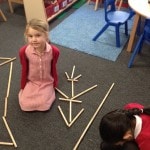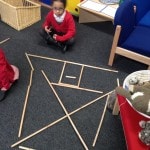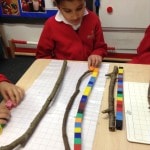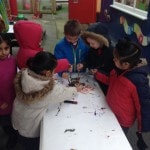Meanwood Park orienteering
This week, linking with their learning about owls, Year 3 helped to create two of the owl markers for a new orienteering project at Meanwood Park.

Further details about the trail will follow once the rest of the owls, from other local schools, are ready and in place.
A moment of mindfulness
After a busy lunchtime, Year 2 had a moment of mindfulness to get focussed for the afternoon’s learning.

Starfish Hand Meditation
This is a great way to divert and refocus the mind.
- Spread your fingers out like a starfish on one hand.
- Take your finger from the other hand and trace around your fingers and hand.
- As you do this, concentrate on only how it feels and let other thoughts float away.
- Continue until you feel relaxed and calm.
Owl report
As part of our Life topic, we have written a report about owls as a class. We split into groups to write different paragraphs and this is what we came up with.
Owls
Owls are known for being wise like Winnie the Pooh’s friend Wise Owl. Interestingly, owls can’t actually turn their heads all the way around. Funnily enough, some schools have owls on their logo because they’re popular. Read this interesting report to find out amazing facts about owls.
Appearance
Interestingly, owls don’t have feet. They have sharp talons that grab their prey silently at night. They have brown, white and sometimes grey feathers which help them to camouflage. They have large, round eyes and pointed beaks.
Habitat
Interestingly, owls usually live near or in woods. They also live in the green wide countryside and nest in tall trees. This is because they need to stay away from large predators below. Shockingly, moist owls nest in long, green grass in the countryside so that they can hide from their prey.
Diet
Owls eat tiny insects, small birds, worms and mammals. Owls hunt at night because they are nocturnal. Owls eat their prey and regurgitate the indigestible parts. Owls eat smaller birds than themselves. Owls live in trees to try and find their prey.
BLAST!
Alright, Charlie is coming to Moortown Primary on Monday 08 February.
Alright, Charlie is a gender neutral, age-appropriate resource for young people which aims to raise the awareness of grooming and how to stay safe from unsafe adults for young people aged 8-11. The BLAST Project been developed in Leeds by a nationally recognised service working to prevent child sexual exploitation (CSE). It’s been funded by the Department for Education and will be available for all primary schools across the country from the end of March; however, schools in Leeds have been piloting the resource since September and so far it has received great feedback from parents, teachers and young people alike.
On the same theme, did you watch the horrific, but true, docudrama on BBC3 last week? Murder Games: The Life and Death of Breck Bednar tells the true story of Breck Bednar, a 14-year-old schoolboy who was lured to his death after being groomed online by Lewis Daynes while gaming. Whilst this seems a world away from primary school, Breck was only 14 years old. (Please note: it contains strong language and upsetting scenes.)
Check out our advice for staying safe on-line.
The last page of our age-related expectations contains age-appropriate skills your child should have in Year 5 and Year 6.
This week
Maths
This week in Maths, we’ve been looking at finding equivalent fractions. Equivalent fractions are two (or more) fractions that are the same size. We’ve compared fractions using fractions tables.
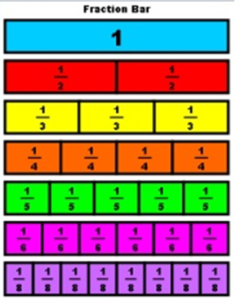 As you can see 2/4 are the same size as 1/2. Why not ask your child if the can spot any other equivalent fractions?
As you can see 2/4 are the same size as 1/2. Why not ask your child if the can spot any other equivalent fractions?
We’ve also started to look at using multiplication to find equivalent fractions. The golden rule for this is to always do to the numerator what you do to the denominator (ask your child to explain this).
English
In English, we’ve been looking at reports on animals. We spent this week practising writing a report on owls and next week we will be doing an assessed piece of writing based on the animals we saw at Animal Intuition. Animal Intuition was a workshop in school where we all go to handle a variety of animals we might not normally get to see.
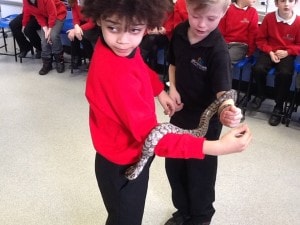
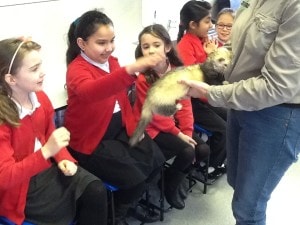
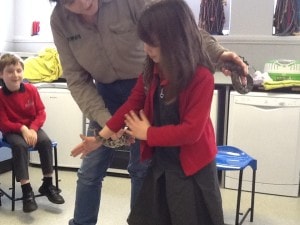
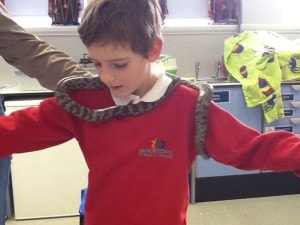
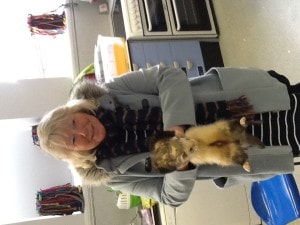 Even Mrs Bald got a hold!
Even Mrs Bald got a hold!
Life
During Science this week, we’ve been learning about different diets and food groups. We came up with our own actions to help us remember the name and purpose of the key food groups: carbohydrates, proteins, fruit and vegetables, fatty and sugary foods and dairy. Why not ask your child about their evening meals and what food groups they can see?
PE
For our PE lesson on Thursdays, we are enjoying dancing to ‘The Carnival of the Animals‘ by Camille Saint-Saëns. It is a musical suite of fourteen movements where each movement represents an animal. We are learning to dance in response to the music. We know to do heavy-footed movements for the elephant music and not move like dainty butterflies!
This week, we focused on movement. We were thinking about how the different animals move and how we can show this with our bodies. We had fun playing games where we had to guess the animal and did some great dancing! Here are some pictures showing some freeze-frames and our animal movement guessing game!
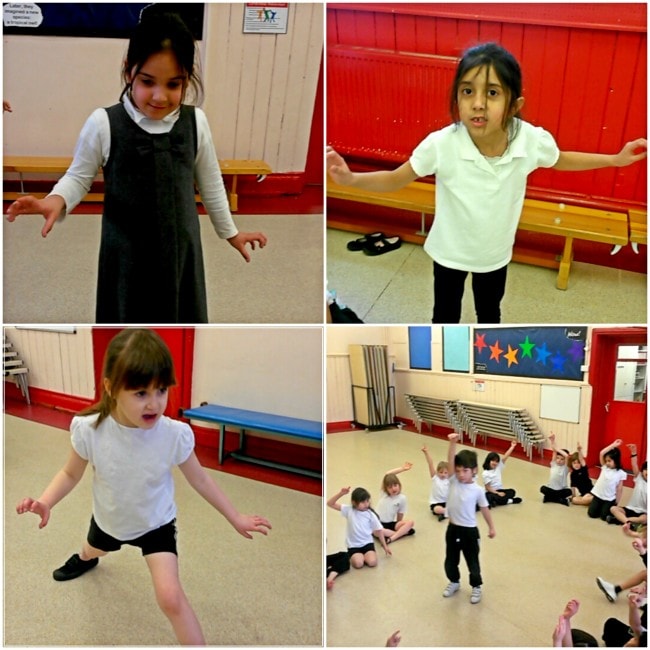
The day the animals came…
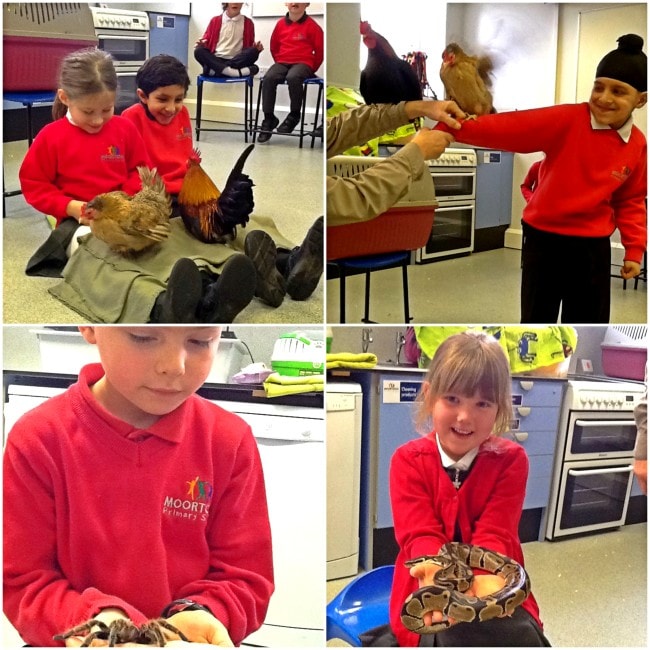
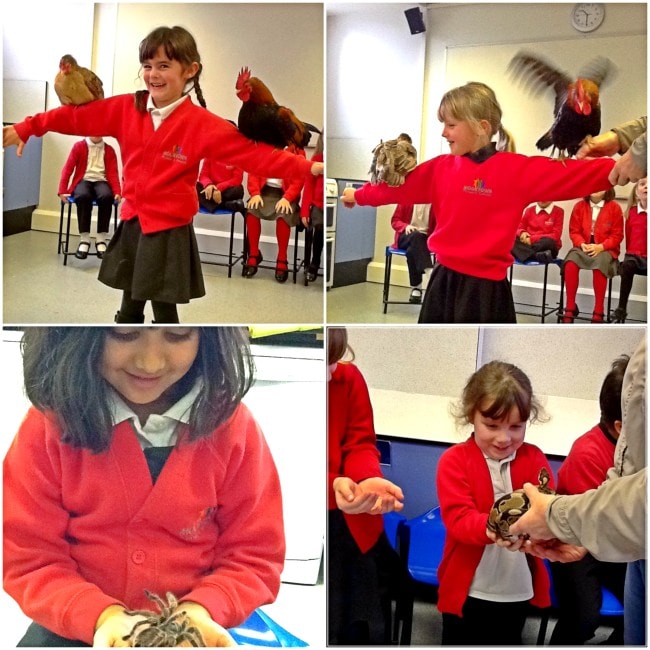
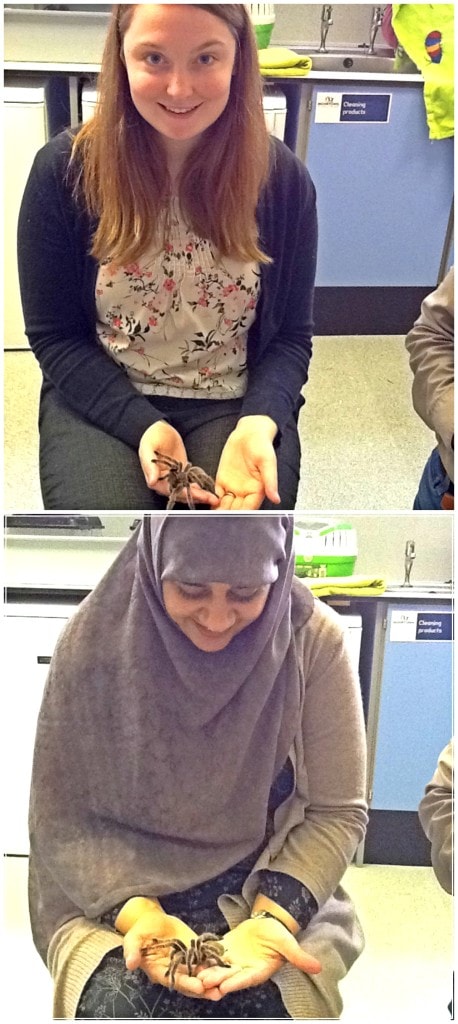
Silk painting
We’ve all tried something new this week. Our art project, linked to our Life topic, has been to create a new hybrid animal and then paint it onto silk. None of us had ever tried silk painting before and we all enjoyed doing something new.
Once we’d designed our new animal, we drew it on silk before going over our design in ‘gutta’. This is an outline which hold the paint inside the lines of your drawing. We practised on paper before using the gutta on silk.
Once our outline was complete, we painted the silk and loved watching how the colours would merge and bleed into each other to create a lovely effect.
What do you think of our final paintings?
Animal Antics
We really enjoyed getting up close and personal with some real life animals as part of our Life topic this week. We wore a snake as a scarf and learnt all about how the patterns of its scales help it to hide from its prey.
We also used our maths skills to estimate how long it was and then measured it against our own height to compare.
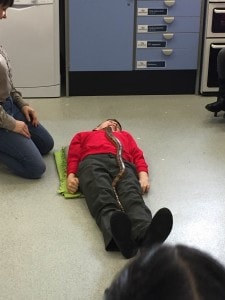
Next, we met some rainforest chickens and learnt all about how the mother has to sit on her eggs to keep them warm so that they’ll hatch.
Finally, it was time for the creepy crawly – a tarantula. Only the bravest dared hold this little creature.
What a fantastic experience for us all. Thanks to Miss Valentine for organising it!
